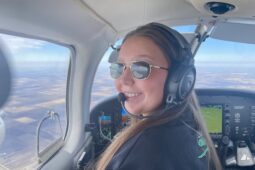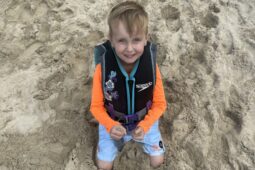King Takes on All Challenges, Including Aplastic Anemia
Treatments at NHLBI help 11-year-old from the Bahamas defeat rare blood disorder without a transplant
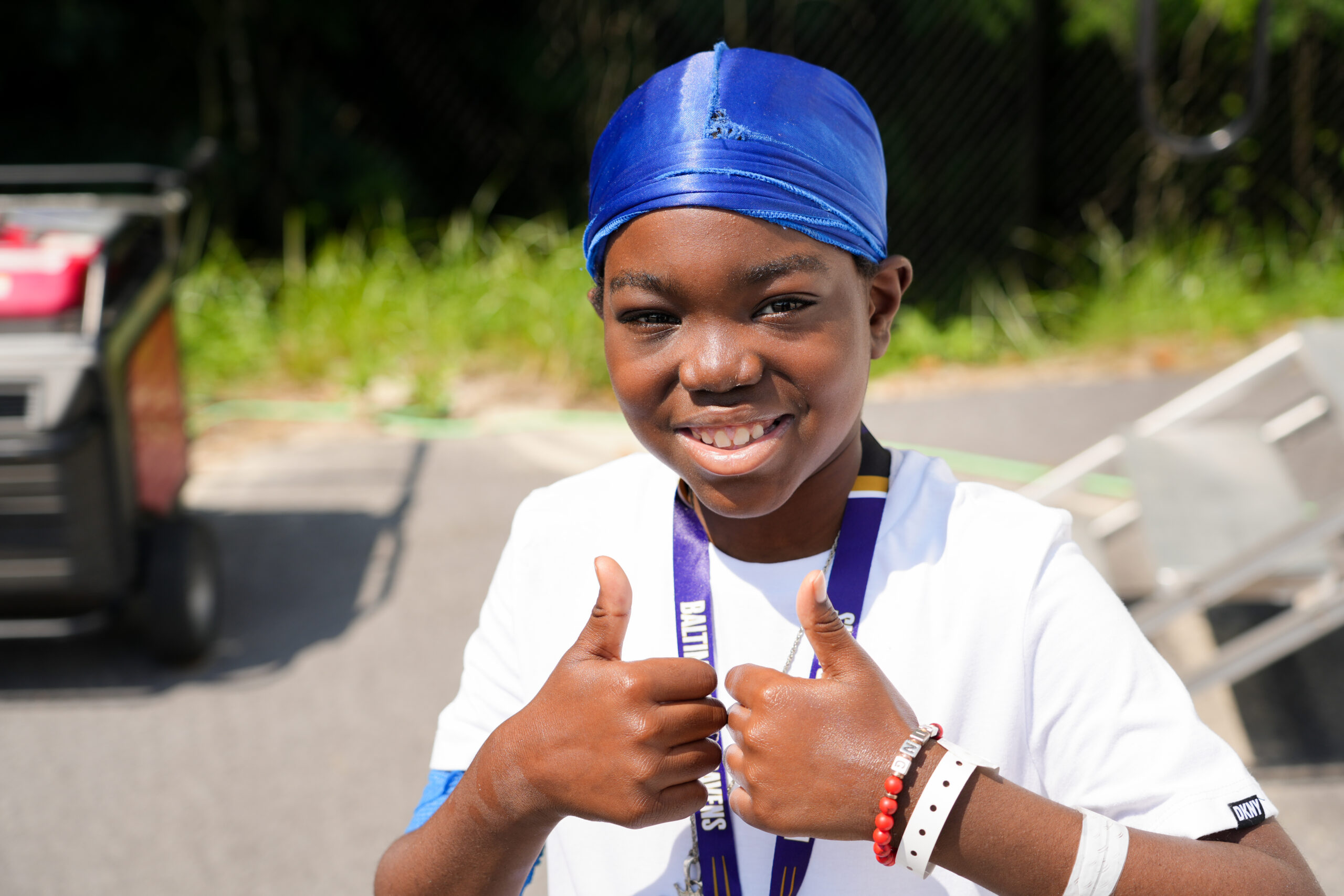
Aplastic anemia made a mistake when it took on King. A polite and friendly 11-year-old from Freeport, Bahamas, King hates to lose. There was never a doubt in his mind that he would win this most important battle of his young life.
Of course, that didn’t mean that his rare blood disorder would go down without a fight. For most of his life, King was unaware that he had aplastic anemia. The third of five children, and an athletic child King played basketball before falling in love with American football. Naturally, for a young man to whom winning meant everything, he gravitated to Tom Brady and became a Tampa Bay Buccaneers fan when the future Hall of Famer signed there towards the end of his career.
On the field, King’s competitive drive was on full display, so much so that it helped mask early warning signs of the rare but serious blood disorder attacking his immune system. His mother, Dereka, remembers a time when King came home from a game sporting a large bruise on his leg – a typical outward symptom of aplastic anemia. She laughed as she remembered thinking nothing of it and telling him to stop playing so rough with his friends.
On November 30, 2023, one day shy of his 11th birthday, King complained of an inability to swallow properly. He was itching a lot and found it difficult to eat. Dereka took him to the hospital. Doctors gave him a visual examination and diagnosed him with tonsilitis, sending him home in the early morning hours of his birthday with antibiotics and painkillers.
“He managed to get through his Christmas examinations,” Dereka recalled. “But he was still not feeling well. And everything went downhill on December 12 when he had to be hospitalized again. So our journey really begins there.”
Unable to power through the symptoms any longer, King was rushed to the hospital that day. This time, doctors performed a bone marrow biopsy designed to determine whether King had aplastic anemia or leukemia. Though she knew the fight was far from over, Dereka was relieved when the result came back: her son had aplastic anemia.
“It was a big relief that it wasn’t cancer,” she sighed. “It was more of a relief because the doctor was aware of two other cases from the Bahamas who had been treated [at NIH] and were doing well. They guaranteed me that my son would be one of those.”
King was airlifted to the hospital in the capital city of Nassau on December 15, where he would remain for more than a month. In mid-January, he was accepted into a study at the National Heart, Lung, and Blood Institute (NHLBI) at the National Institutes of Health.
King arrived at The Children’s Inn at NIH, where he was to stay while in the trial, on January 20. At NIH, King underwent ATG treatments, an immunosuppressive therapy that attacks the T-lymphocyte cells attacking bone marrow. In previous cases, this treatment has proven to be effective without the need for a bone marrow transplant.
Along with his mother, King settled into life at The Inn. While his father and siblings also joined for part of the time, King and Dereka remained at The Inn for more than seven months. He made friends with fellow residents from around the world and especially enjoyed spending time in The Inn’s gaming room. His game of choice is Fortnight, which he revels in playing with cousins and friends back home in all-night marathons while Dereka sleeps in the next bed. When asked what he liked best about Fortnight, he answered with a smile and a sense of confidence: “I like to win.”
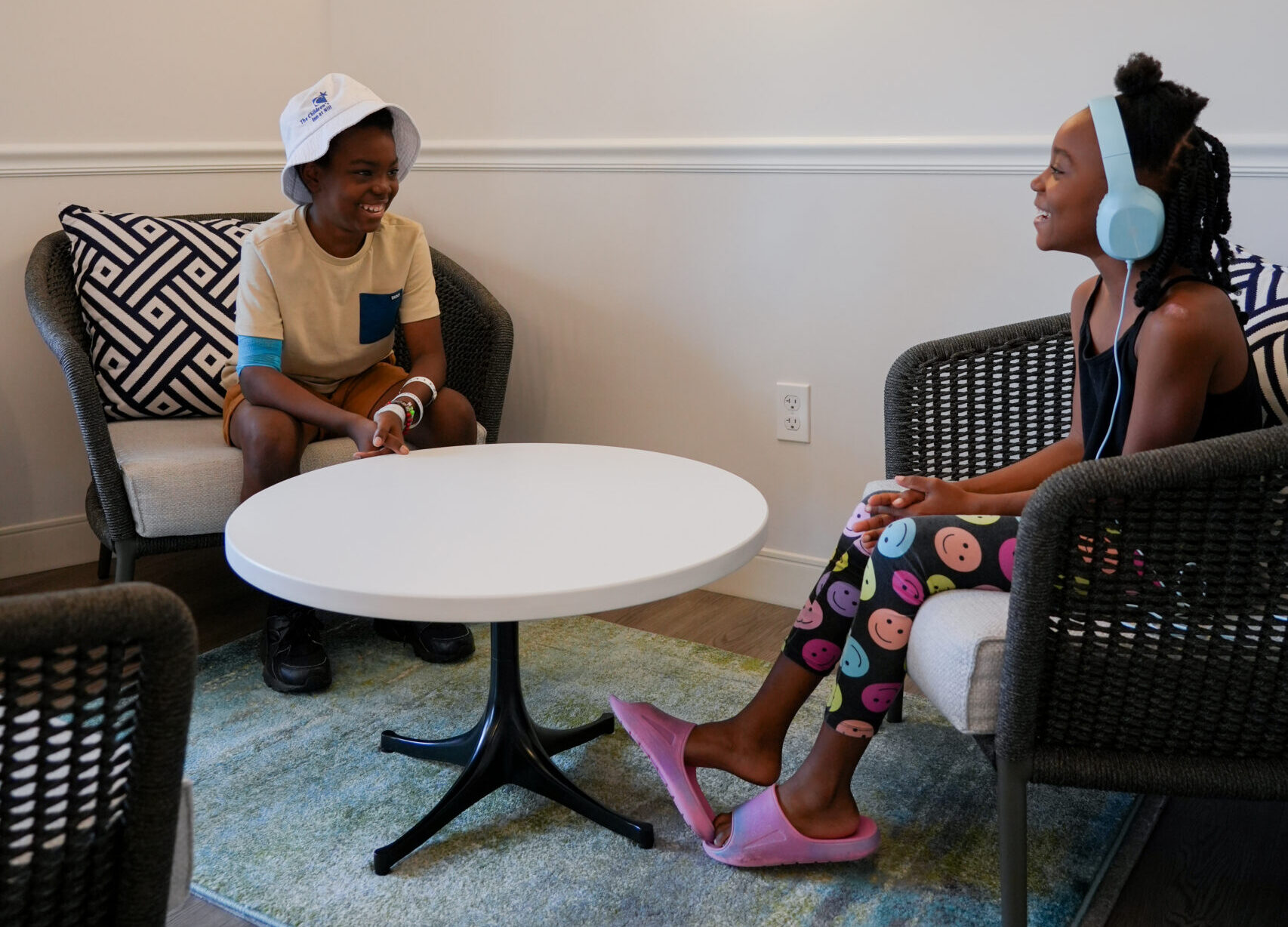
Thanks to The Inn’s programming team, King has had opportunities to visit training camps for the two NFL teams nearby – the Washington Commanders and the Baltimore Ravens. Watching these professional athletes up close and in person for the first time, King managed to make an impression. At Commanders camp, he came away with a pair of cleats gifted to him by a player leaving the practice field at the end of the day. At Ravens camp, he filled a replica helmet with autographs and managed to snag a wristband from one of the players.
King endured months of early mornings (often after little or no sleep thanks to his Fortnight sessions) for treatment and testing at the NIH Clinical Center with no complaints. The longer he stayed, the more King became a fixture at all sorts of Inn activities, building more friendships with residents as well as staff.
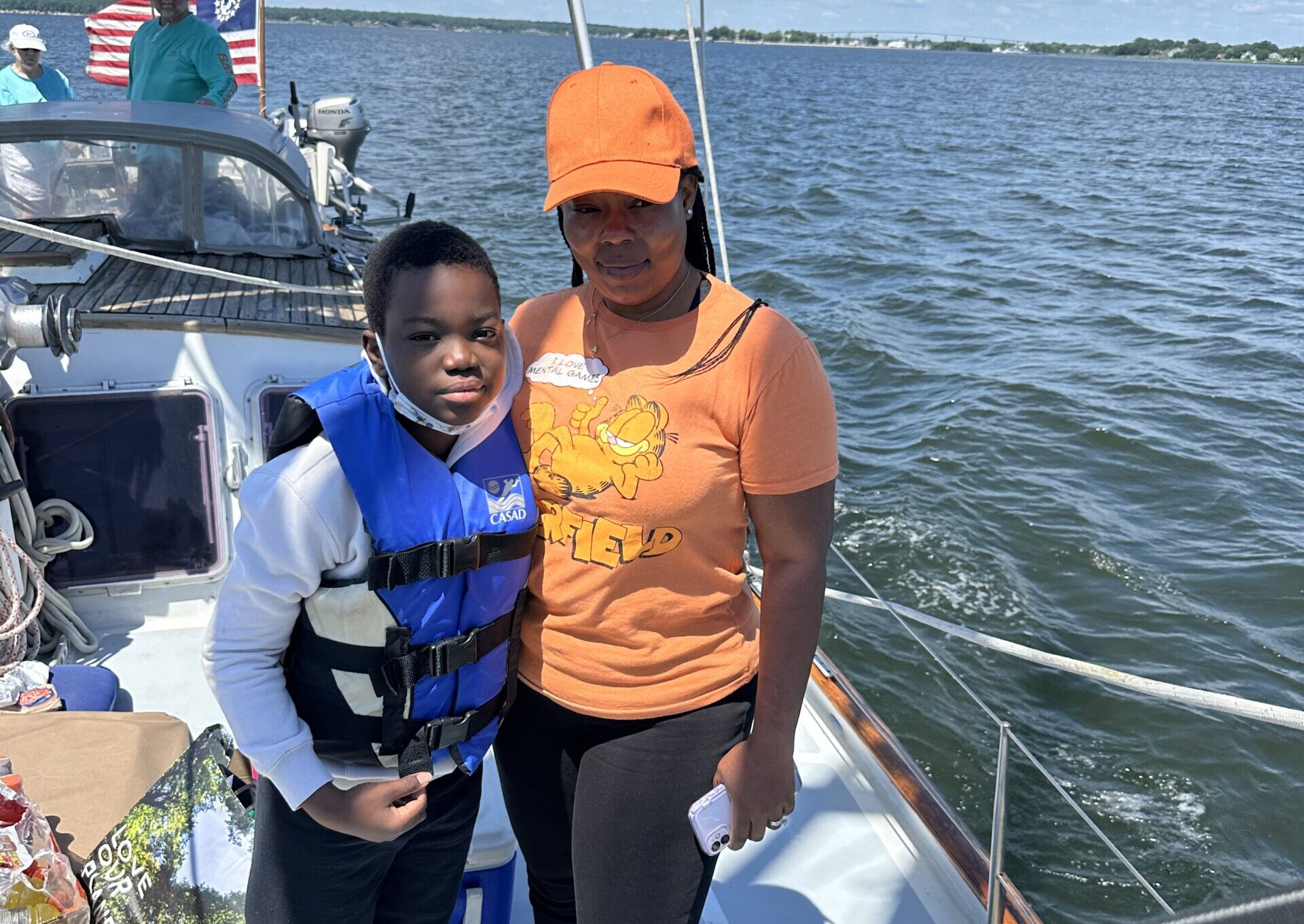
Given his regal name by his father, King takes pride in all it represents. He could often be seen sporting a hat or necklace with his name emblazoned on it. Despite that, he was unfailingly polite and endearing, showing more of his creativity and quick mind as he became more comfortable in his surroundings.
In late July he underwent another bone marrow biopsy, this one meant to determine whether treatment was doing its job or if a transplant would be necessary. When the results were in, they were definitive: King had won. With a few more weeks of treatment, he would be able to put this fight behind him and return to his active life in Freeport.
Of course, a genetic condition such as aplastic anemia had no way of knowing the sort of competitor it was up against. But with the help of his medical teams in the Bahamas and the NIH, as well as the support of his family and friends, there was never a doubt in the minds of anyone who met him that he would come out on top. Whether the opponent is a tackler, a fellow gamer, or a life-threatening blood disorder, if you come at King, you best not miss.

